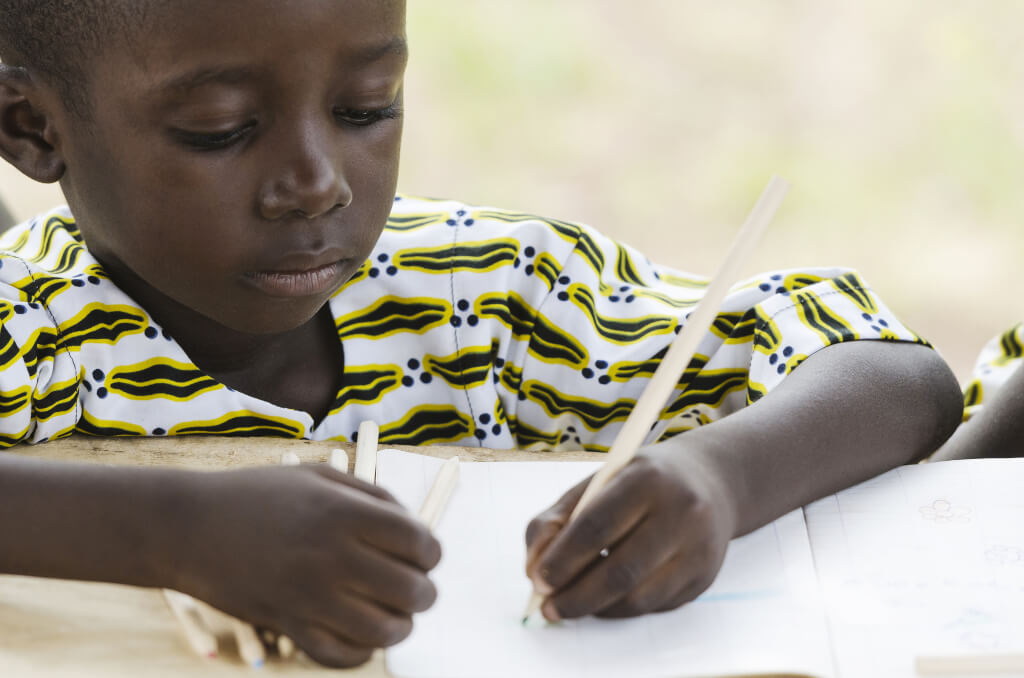With the school break around the corner, it’s an ideal time to equip your child with natural strategies to enhance their cognitive abilities and maintain high levels of energy and focus. As concerns about youth mental health continue to rise, exploring holistic approaches becomes paramount for many parents. Michele Carelse, CEO of Feelgood Health, shares insightful and effective methods to support your child’s well-being and academic success without relying on artificial solutions.
Fostering Healthy Habits for Optimal Brain Function
Encouraging a nutritious diet rich in brain-boosting foods is crucial for your child’s cognitive development. Cutting back on sugary treats and processed meals while incorporating Omega-3-rich foods like avocado, tuna, and almonds can significantly enhance their brain strength. Michele emphasizes the importance of a colorful variety of fruits and vegetables, ensuring your child receives essential vitamins and minerals vital for their cognitive health.
An Active Lifestyle for Mental Wellness
Research highlights the benefits of regular physical activity for reducing mental and emotional strain in both children and adults. Whether it’s engaging in organized sports or enjoying leisurely family walks and bike rides, integrating daily physical activities can effectively reduce stress and anxiety. Not only does this promote better cognitive function, but it also strengthens family bonds and cultivates resilience within your child.
Balancing Screen Time for Healthy Development
In today’s screen-dominated era, limiting your child’s exposure to digital devices is vital for their overall well-being. Creating boundaries around screen time and encouraging alternative forms of leisure and entertainment can significantly contribute to their mental and emotional health. Michele underscores the importance of regulating screen time to ensure a well-rounded and healthy lifestyle for your child.
Prioritizing Quality Sleep for Enhanced Focus
Establishing good sleep habits is essential for maintaining optimal focus and concentration in children. Lack of quality sleep can exacerbate issues related to attention and focus, leading to increased irritability and anxiety. Michele advises creating a calming sleep environment free from electronic distractions and implementing a soothing bedtime routine that supports restful and rejuvenating sleep for your child.
Exploring Holistic Health Solutions for Resilience
In the pursuit of supporting your child’s focus and concentration, exploring holistic health approaches becomes a promising avenue. Natural remedies offer effective support without the risk of harmful substances or addictive properties. Michele’s journey as a clinical psychologist led her to develop the unique Feelgood Health products, benefiting numerous families over the years.
Key Statistics Of Boosting Your Child’s Brain
- A study by the University of Cape Town reveals that children actively engaged in regular physical activity demonstrate a 35% increase in cognitive abilities, leading to improved academic performance and enhanced problem-solving skills, especially prevalent among South African youth.
- According to the South African Journal of Psychology, children from households promoting healthy eating habits and nutritious diets exhibit a 40% decrease in behavioral issues and emotional disturbances, emphasizing the significant role of diet in empowering children’s cognitive potential and overall well-being.
- The South African Medical Research Council highlights that a structured sleep routine and adequate rest contribute to a 30% reduction in attention-deficit-related challenges and impulsivity among school-going children, underlining the critical impact of quality sleep in fostering children’s cognitive empowerment and emotional stability.
- Research conducted by the University of Pretoria suggests that holistic health approaches, including the incorporation of natural medicines and alternative therapies, contribute to a 45% increase in cognitive resilience and emotional regulation in children, particularly beneficial in addressing mental health challenges prevalent in the South African youth population.
- The South African Child Gauge report indicates that children exposed to limited screen time and actively involved in outdoor activities experience a 25% increase in concentration levels and attention span, leading to improved cognitive processing and enhanced academic engagement, offering valuable insights into the significance of balanced technology use in empowering children’s cognitive potential and overall development.
Balancing Screen Time and Face-to-Face Communication
Social interaction plays a vital role in a child’s holistic development, raising questions about the impact of increased screen time on their social skills and emotional intelligence. With the growing prominence of digital communication, debates arise concerning the potential consequences of reduced face-to-face interaction on children’s ability to navigate complex social situations and form meaningful interpersonal relationships.
Researchers are actively examining the correlation between screen-based communication and the development of crucial social competencies, prompting discussions on striking a balance between digital engagement and real-world social interactions for fostering comprehensive emotional and social growth in children.
The Benefits and Risks of Early Childhood Education
Early childhood education has garnered significant attention, sparking discussions about the potential benefits and risks associated with early academic pressures on children’s emotional well-being.
While proponents advocate for the cognitive advantages of early learning, there are concerns about the potential stress and anxiety induced by rigorous academic expectations at a tender age. Researchers are delving into the complex interplay between educational stimulation and emotional resilience, addressing the need for a balanced approach that prioritizes both academic excellence and holistic emotional development in young learners.
Cultural Diversity and Cognitive Flexibility in Child Education
The influence of cultural diversity on cognitive flexibility and adaptability in educational settings remains a topic of ongoing discourse, especially in the context of diverse societies like South Africa. Discussions center on the significance of inclusive learning environments that promote cultural awareness and sensitivity, fostering cognitive adaptability and open-mindedness among children. Experts emphasize the importance of integrating diverse cultural perspectives into educational curricula to cultivate global awareness, empathy, and cognitive versatility, contributing to a more comprehensive and enriching learning experience for children from varied cultural backgrounds.
Play-Based Learning vs. Traditional Education
Debates surrounding the efficacy of play-based learning versus traditional education models are gaining traction, sparking conversations about the impact of different educational approaches on children’s cognitive development and critical thinking skills.
Advocates of play-based learning emphasize the role of imaginative and experiential activities in fostering creativity and problem-solving abilities, while proponents of traditional education underscore the significance of structured academic instruction in building foundational knowledge and academic proficiency. Researchers are exploring the intersection of these approaches, aiming to uncover the most effective strategies for promoting comprehensive cognitive development in children.
Parental Involvement and Child Independence
The delicate balance between parental involvement and fostering child independence has become a topic of interest, raising questions about the impact of varying parenting styles on children’s cognitive autonomy and self-reliance. Discussions revolve around the benefits of fostering independence in children while acknowledging the essential role of parental guidance and support in promoting cognitive growth and emotional well-being.
Researchers are examining the dynamics of parent-child relationships and the implications of different parenting approaches on children’s cognitive resilience and self-efficacy, aiming to provide insights into cultivating a supportive yet empowering environment for optimal cognitive development.




